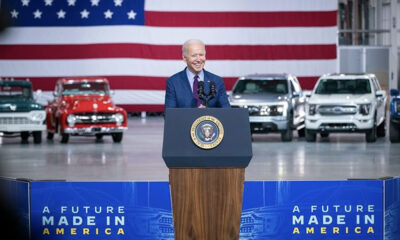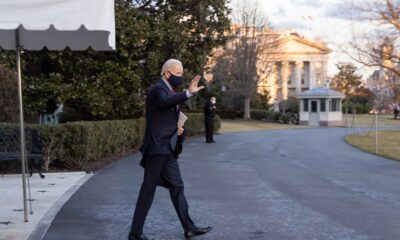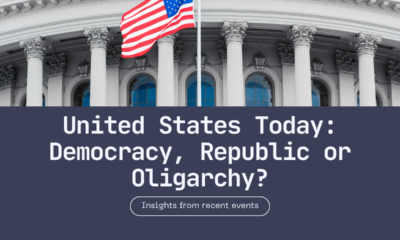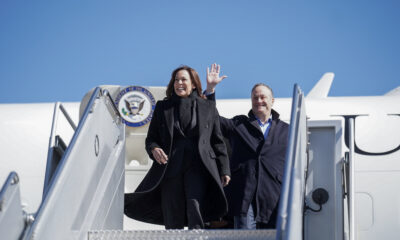Constitution
1924: Another Kind of Election
Two trustees of the Calvin Coolidge Foundation remember the Election of 1924 and draw parallels between it and this year’s election.
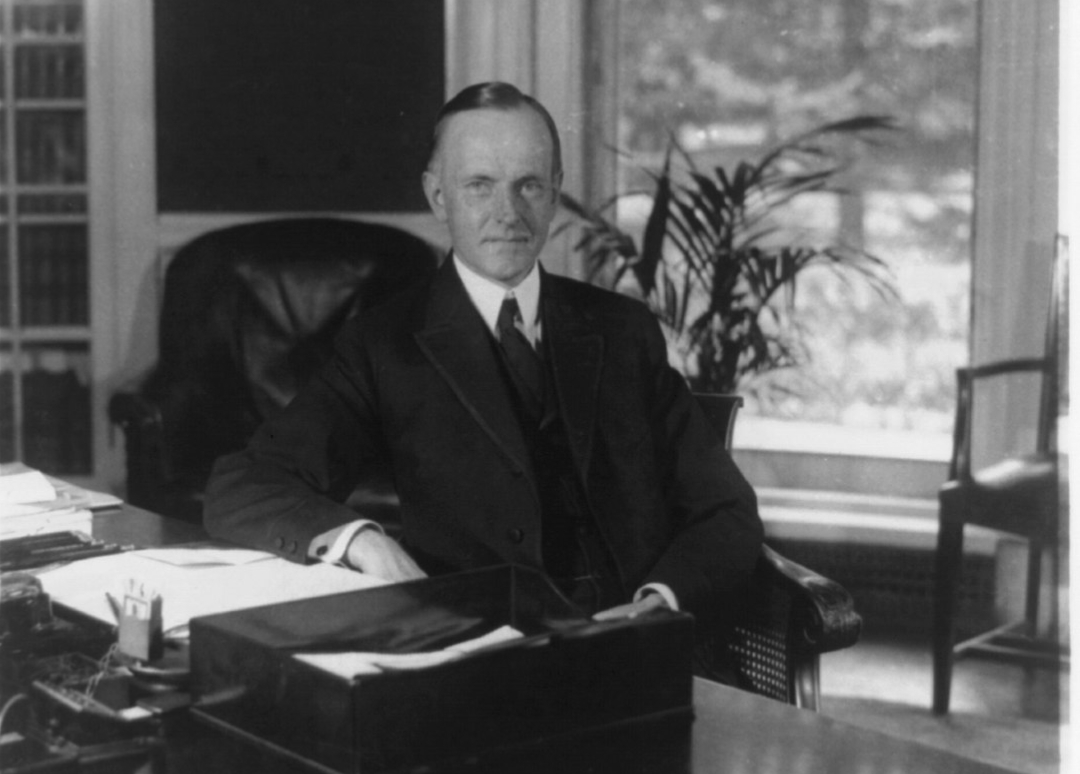
It’s all over but the shouting.
That’s how this year’s election feels, and it’s only February. The losers are Americans who must absorb the insults and slogans hurled from political veterans on the stage.
But voters need more than shout shows from old idols in a campaign year. An election year is supposed to be a chance to consider not just candidates but ideas. Just what we gain from a civil contest becomes clear when we look at the presidential election that took place a century ago.
The presidential election of 1924 commenced as fast and furious as any nowadays. And just as today, the country was in an uproar over immigration, with the vast majority wondering not whether but how Washington would curtail the inflow. The Ku Klux Klan was on the march, even in the North.
A Republican vice president, Calvin Coolidge, had acceded to the presidency just half a year before, when President Warren Harding died. Those most offended at the thought of a newbie profiting from incumbent advantage came from the fastest-growing segment of Coolidge’s own political party, the progressives. The newspapers reported that Sen. Hiram Johnson of California charged that Coolidge would “steal” the election. Harding had left behind a scandal whose details were now slowly emerging: a cabinet member and his friends had arranged sweetheart deals on oil concessions at Teapot Dome, Wyoming, and in California. No Harding legacy figure, the progressives harrumphed, could perform the necessary “house cleaning.”
These days, Coolidge would be advised simply to shout the other fellows down and slide left to capture the progressive vote.
But Coolidge did not shout or slide. Instead, he stuck to traditional Republican Party values – the retro equivalent of opting to play the Reaganite today. Coolidge signed a round of tax cuts into law and promised further cuts, warning that keeping the “rewards of their own industry” was for Americans “the chief meaning of freedom.” He backed business up. The old GOP was pro-tariff – so was Coolidge. Congress voted in veto-proof majorities for immigration restriction; Coolidge signed the restriction into law. On Teapot Dome, Coolidge did his own housecleaning, appointing two special counsels – one Republican and one Democratic.
The Democrats’ equivalent of the progressives was the growing Ku Klux Klan. Party sages counseled candidates (several were vying for the nomination) that they would have to live with the KKK – or endorse it.
The clamor reached its peak during the Democratic National Convention in New York, where people packed in “like sardines” to fit the hall. On the convention floor, Klan supporters blocked vote after vote; participants used horse fiddles, tom-toms, and hand-turned sirens to produce a din that disrupted for hours. The convention’s third day, the New York Times reported, featured a “demonstration which for noise and artificial enthusiasm from several thousand individuals not entitled to participate in its deliberations, doubtless surpassed anything of the kind ever attempted.”
Finally, a quiet near-unknown, John W. Davis of West Virginia, secured the nomination on the 103rd ballot. Once nominated, Davis did denounce the Klan, saying that racial prejudices “must be condemned by all those who believe, as I do, in American ideals.”
After the feisty progressives did break off from Republicans and field their own candidate, Sen. Robert La Follette of Wisconsin, the nation had three men to consider. “Fighting Bob” was as good a shouter as any of today’s cable television provocateurs. La Follette claimed that Andrew Mellon, the Treasury Secretary, was “the real president of the United States. Calvin Coolidge is merely the man who occupies the White House.”
To the surprise of the clamorers, Davis’ dignified demeanor did win over audiences. More importantly, the civil culture followed Davis around like sunny weather, allowing him to employ gentle persuasion. For example, Davis pinpointed the contradiction in the Republicans’ claim that they could support both the working man and tariffs.
“Is there not something of humor as well as honesty lacking in those who in one and the same breath can promise a reduction of the cost of living,” asked Davis, “and praise a statute which raises the price of the elemental necessaries of life?”
The main thing about the two surprise candidates was how much they resembled one another. Coolidge and Davis were both attorneys. Both men called for limited government, lower taxes, constitutional federalism, and reduced federal spending. Both were gentlemen – to use an old term – who saw the merit in substantive discourse. The Calvin Coolidge who campaigned in 1924 as an incumbent stuck to a vow he’d made long ago: “I will not attack an individual.” Davis, too, never “went negative,” in today’s parlance. (King George V of Great Britain called Davis “the most perfect gentleman I have ever met.”) Neither candidate played to racism or xenophobia.
Fighting Bob La Follette took nearly 17% of the popular vote on Election Day. But the other 83% went to Civility, Coolidge, and Davis – in that order. The nation had consulted itself and decided that it, too, wanted to be civil and conservative.
This unity did not endure. A disappointed Democrat, Franklin Roosevelt of New York, declared that it was useless for Democrats to “wear the livery of the conservative.” Democrats have heeded FDR’s advice ever since. But Davis’ gift to the nation was real. His arguments about protectionism, for example, stuck in Roosevelt’s ear. As president a decade later, FDR backed Davis-esque free-trade agreements.
Isolated, the Republicans then began their great shift away from protectionism to the immense benefit of the economy in the next half-century. Maybe next time we can have an election like that.
This article was originally published by RealClearPolitics and made available via RealClearWire.
-

 Executive4 days ago
Executive4 days agoSecret Service chief gets no solace
-

 Executive3 days ago
Executive3 days agoWaste of the Day: Louisville Taxpayers Pay Nearly $600,000 For Empty Building’s Maintenance, Security
-

 Guest Columns4 days ago
Guest Columns4 days agoFear Itself: Democrats’ Favorite Strategy Caused Their Current Chaos
-

 Executive3 days ago
Executive3 days agoWhere is Joe Biden – or Jill?
-

 Executive1 day ago
Executive1 day agoWaste of the Day: Throwback Thursday: Cities Used Crime Prevention Funds on Soccer Games, Paper Shredding
-

 Executive2 days ago
Executive2 days agoFacile and politically motivated suggestions
-

 Civilization5 days ago
Civilization5 days agoBuild Iron Dome in the United States To Prepare for Israel’s Worst Day
-
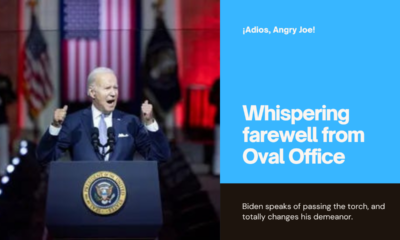
 Executive1 day ago
Executive1 day agoBiden makes farewell whisper








